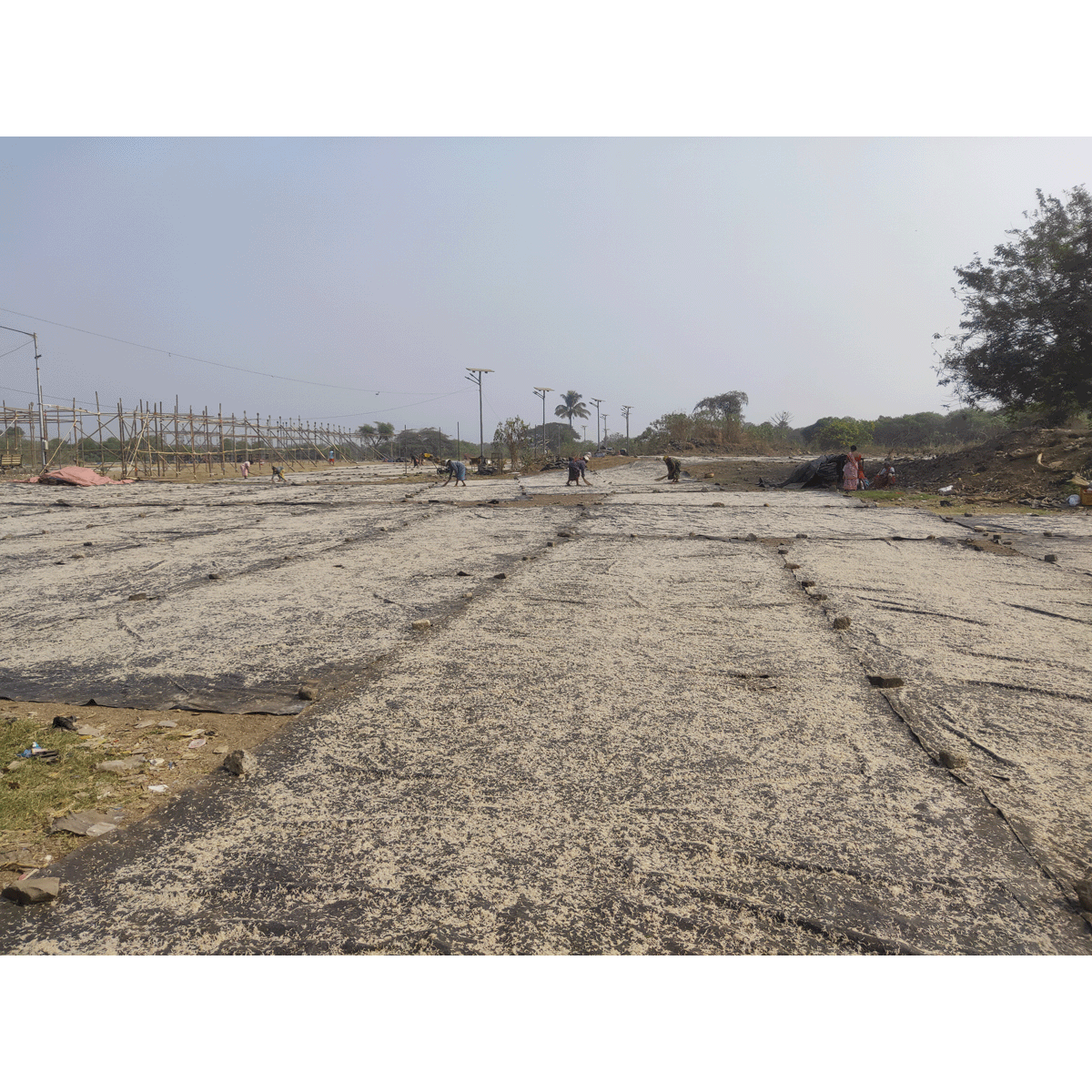Towards Varaa

Towards Jetty
-

Towards Koliwada
-

Crows
.

Cats
.

BEST Board
.

Retail Vendors

Door to Door Vendors

Clam and Oyster Pickers

Kala Kolim Catchers
"I rub some misri before entering the water, or else i will be frozen in this winter" says Indubai who collects kala kolim every morning in the salt panes behind the Cheetah Camp. The kala kolim is a species of prawns, very sensitive and lucrative also. some 20-25 women collect kala kolim every morning in the winter and literally run to the Trombay market to sell it off as soon as possible. Kala kolim is a delicacy in Kolis and Christans. Christans who make pickle out of it are the major customers of these fisherwomen. however, they dont get desired rate these days. The customers have them delivered it at home which is increasingly compromising their bargaining power that the auction at the Dhakka gave them.

Inherited Spot Owners
Hema buys fish from Trombay's Dhakka early morning every day. Depending on yesterday's income, she decided whether to buy cleaned or unsorted fish. loading the purchase in a Rickshaw, she then goes to her selling spot in Mumbai, which she has inherited from her mother. Her regular customers wont buy from anywhere but Hema! Unavailibility of fish has become more often in Trombay these days. Hema who has a significant financial responsibility of her household is then left with no other option but to travel all the way to Bhaucha Dhakka to buy fish.

Crab & Nevti Pickers
Pushpa is the only women left in Trombay to be brave enough to enter the Chikhal for Crabs and Nevtis. Pushpa who has become quite old now, has been doing this since she was a little girl. She's said to be the best at this fishing technique in Trombay because no crab nests or footmarks can escape her sharp eyes and smart hands. Even when the Chikhal has become risky to enter with the industrial pollutants causing skin rash and the broken glass pieces piercing through feet, she refuses to give up her permanent job!

Helpers
Mira has been working under Kamal for Javla drying as a helper at Trombay since past 15 years. Mira is from Bihar and lives in Maharashtra Nagar Basti. Migrant women from other states, living in nearby bastis are usually employed as helpers by wholesale fish vendors and javla dryers. Helpers like Kamal are usually employed on daily wage basis. They are completely dependent of the Javla dryers of Trombay for their wages for decades. When the sea fails their employers in peak javla season, these helpers also loose on their livelihood.

Boat Owners
Jayashree arrives at the Dhakka early morning, sets up her baskets and spreads her sheet while waiting for her husbands boat to arrive at the jetty. As soon as the fish arrives, they pour it all down on the tarpoline sheet and she starts cleaning it with the help of the sorter. With the reducing fish and increasing kacchra in the nets, Jayashree's business gets severely affected. Since the enterprising of the fish is completely dependent on her, she has now started retail of dry fish as a side business to cover up the income lost in the family business of fresh fish

Sorters
Malti used to be a boat owner but when her husband died she had to switch to door-to-door vending to support her family. Now, when her kids are independent and earn well, she’s no more allowed to go vending. but for her as someone who has worked for entire life, it very difficult to not earn at all. So she comes to the Dhakka every morning to help boat owner women sort and clean the fish. All these wholesale fish sellers have their sorters fixed. The sorters are mostly paid with a share of fish catch or on daily wage basis. With increasing Kachra in the sea, sorting is becoming more and more time consuming task with a new burden of waste falling on fisherwomen.

Javla Dryers
As soon as the Trombay's morning wholesale markets ends, the dhakka is entirely covered with black tarpoline sheets with white javla spread for drying. They also sell dried javla in the wholesale market in the morning, which is bought by retail vendors. Javla is a speacility of Trombay. Majority of Trombay depends of Javla for the whole winter and summer season. The Javla dryers buys Javla from the boat owners of Trombay, dries it and sells to the retail women vendors and some north indian traders, which then goes into the narrowest lanes of mumbai. However, the fisherwomen involved in the processing of Javla are suffering because the quality of javla is detoriarating due to change in climate and development projects surrounding Trombay from both the sides
